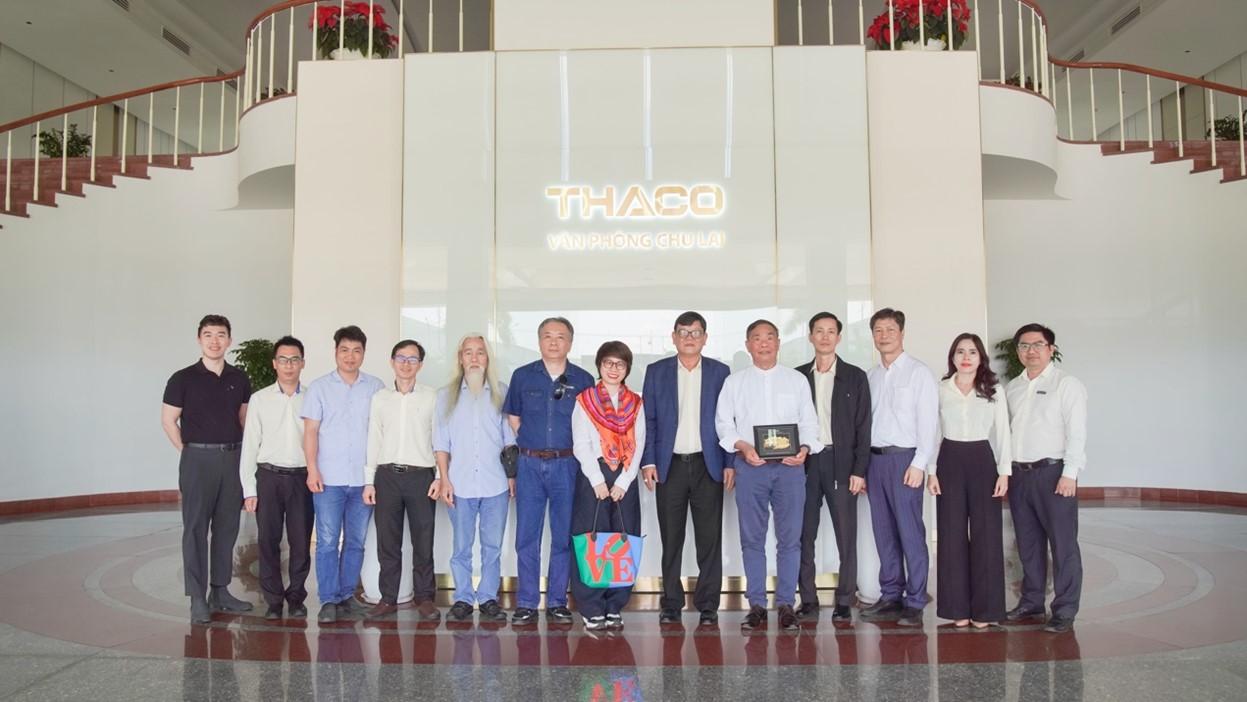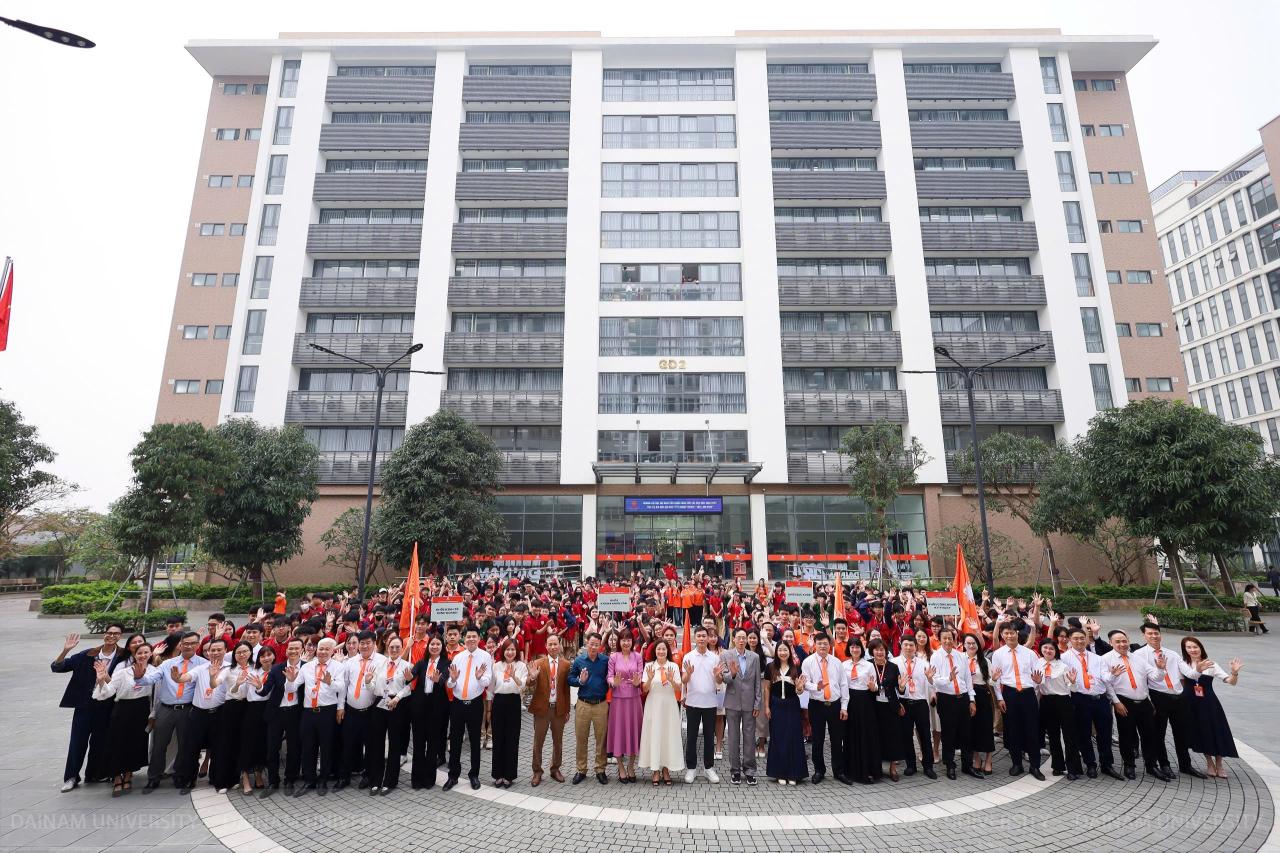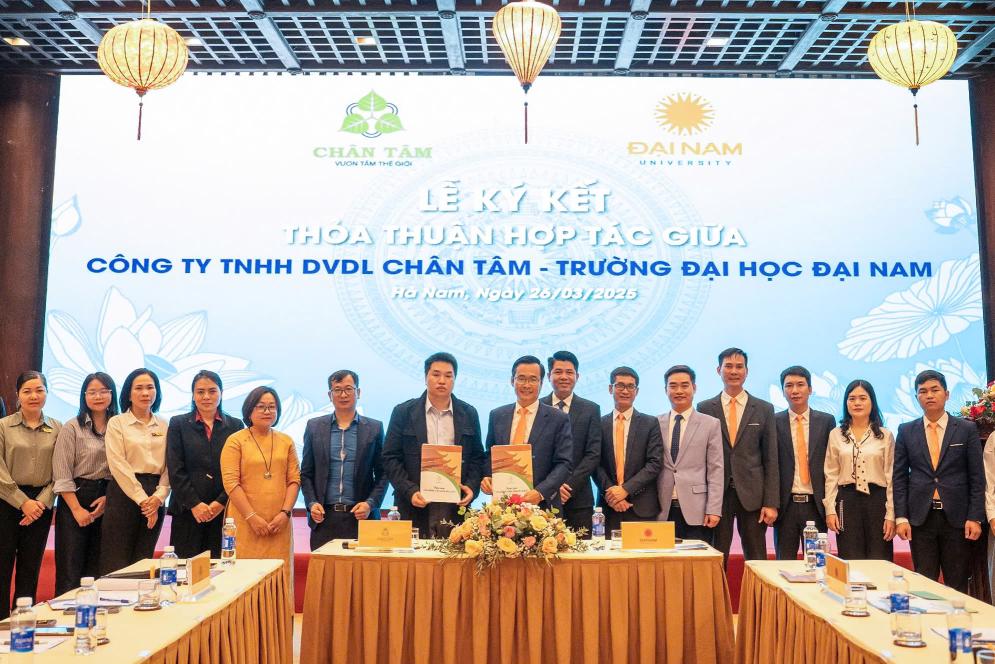CAND Political Theory Magazine published an article by Associate Professor, Dr. Dinh Cong Tuan - Director of the DNU Institute of International Studies.

1. Historical milestones in the relationship between the two countries since the establishment of diplomatic relations
The period before the establishment of formal diplomatic relations (before 1950)
Vietnam - Russia relations have existed for a long time, since the mid-19th century, when Russian ships docked at Saigon port (1). Since 1906, the first Russian consulate appeared in Saigon (2). Although thousands of miles apart, Vietnam - the Soviet Union had contact very early and became closer after the October Revolution in 1917 through the role of Nguyen Ai Quoc - the first communist in Indochina (3). Before the two countries established diplomatic relations, many leaders and predecessors of the Vietnamese revolution went to the Soviet Union to study and participate in revolutionary activities, such as: Nguyen Ai Quoc, Tran Phu, Ha Huy Tap, Nguyen Thi Minh Khai, Le Hong Phong, Nguyen Khanh Toan, Tran Van Giau... The Soviet Union was the cradle that nurtured, educated, trained and practiced the predecessors of the Vietnamese revolution, helping Vietnam in the struggle for national liberation, moving towards building socialism in the future.
The period from when the two countries established diplomatic relations until the collapse of the Soviet Union (1950-1991)
In the context of the fierce resistance war of the Vietnamese people against the French colonialists, in January 1950, the Soviet Union and other socialist countries in Eastern Europe and China officially established diplomatic relations with Vietnam, affirming the legal status of the democratic republic established for the first time in Vietnam. For 40 years (1950-1991), through the two resistance wars against France and the US of the Vietnamese people, the Soviet Union always raised the slogan "for Soviet communists, solidarity with Vietnam is a command of the heart and mind". The Soviet-Vietnamese relationship was increasingly consolidated and developed in all fields. After Vietnam successfully resisted and unified the country (in 1975), the Soviet Union continued to help Vietnam rebuild the country after many years of war. This was the period of comprehensive cooperation alliance between the two countries Vietnam and the Soviet Union.
During the period when Russia replaced the Soviet Union, both Vietnam and Russia faced comprehensive crises (1991-1994).
In 1991, the Union of Soviet Socialist Republics disintegrated. The 15 member republics of the Soviet Union became independent states. The Russian Federation alone became the successor to the Soviet Union in international relations. At this time, the Vietnam - Russia relationship entered a new phase: both inheriting and continuing, and having qualitative changes, fundamental adjustments compared to the previous Soviet - Vietnam relationship, the relationship was based on the principle of equality and mutual benefit and experienced ups and downs, which was the most difficult period in the Vietnam - Russia relationship. The relationship at this time stagnated and declined sharply. The main reason was that both sides redefined their national interest systems, as well as the foreign policy priorities of each country, which became very different in the new international context after the Cold War. The Russian Federation pursued an "Atlantic-oriented" foreign policy, prioritizing Western capitalist countries. For Vietnam, improving relations with neighboring countries and Southeast Asian countries is a top priority.
25th anniversary of signing the Treaty on basic principles of friendly relations between Vietnam and the Russian Federation (June 16, 1994 - June 16, 2019)
Since 1994, the Russian Federation has made important, fundamental, and turning-point adjustments in its foreign policy. Russia has adopted a “Eurasian orientation” (balancing relations both West and East) instead of an “Atlantic orientation” to overcome the one-sided, illusory state of relations with the United States and Western countries, while at the same time focusing on developing cooperative relations with Asia-Pacific countries, especially the CIS countries, China, India, and ASEAN. In implementing its “Eurasian orientation” foreign policy, Russia has emphasized cooperation with Southeast Asia. Russia has expanded bilateral relations with each country in the ASEAN region, while promoting multilateral cooperation with this region. In April 1994, Russia became one of 18 countries participating in the ASEAN Regional Security Forum (ARF) and one of 10 full dialogue partners of ASEAN in July 1996. This was the period when Vietnam-Russia relations were improved in quality. The two sides signed the “Treaty on the basic principles of friendly relations between the Socialist Republic of Vietnam and the Russian Federation” on June 16, 1994 during the friendly visit of Prime Minister Vo Van Kiet, replacing the Vietnam-Soviet Union Treaty of Friendship and Cooperation (November 1978) which had expired. This was the legal foundation, an important event, opening a new stage in the relationship between the two countries based on the principle of equality and mutual benefit, qualitatively different from the previous Vietnam-Soviet relationship.
Over the past 25 years (1994 - 2019), the cooperative relationship between the two countries has gradually been upgraded. In 2001, the strategic partnership was established and deepened. The most notable event during this period was the first visit to Vietnam by a Russian head of state (including the Soviet era) - the visit of President of the Russian Federation V. Putin (from February 28, 2001 to March 2, 2001). During this visit, the two countries signed a joint statement on strategic partnership and many cooperation documents, defining a new legal framework for Vietnam - Russian Federation cooperation on the basis of trust, closeness and long-term. The comprehensive cooperative relationship in all fields of politics, economy, defense - security, culture - society, education - training, science - technology, tourism ... have all been strongly promoted and constantly developed by the two countries. In response to the demands of both sides, to suit the strategic partnership in the new international context, on December 27, 2012, Vietnam and the Russian Federation issued a joint statement on upgrading and further strengthening the comprehensive strategic partnership between Vietnam and the Russian Federation.
In recent years, the comprehensive strategic partnership between the two countries has deepened and become increasingly effective in all areas. Vietnam considers Russia a high priority in its foreign policy as a traditional friend, a world power and a comprehensive strategic partner. In addition, Vietnam has become an important strategic partner of Russia in the Asia-Pacific region and a leading partner in Southeast Asia. Official friendly visits, talks, meetings and exchanges between the two countries regularly take place on the basis of consensus, common views and perceptions on many international issues, as well as in the Asia-Pacific and Southeast Asia regions. 2019 is considered the year of "cross-cooperation and exchange" between the two countries, the year of Vietnam in Russia and the year of Russia in Vietnam (4).
2. Issues of implementing bilateral international treaties signed between the two countries from 2001 to 2018
Status and results of implementation of bilateral international treaties signed between Vietnam and Russia
According to statistics from the Ministry of Foreign Affairs of Vietnam, from 2001 to 2018, Vietnam and the Russian Federation signed 56 treaties that are in effect. Through reviewing and evaluating the implementation results of the 56 treaties signed between the two countries by Vietnamese ministries and branches, most opinions agree that the achievements in cooperation in various fields between the two countries are very large and meaningful. Among the 56 treaties signed between the two sides, local cooperation is a bright spot in the Vietnam - Russia comprehensive strategic partnership. During the period of 2001-2018, through the signing of international agreements, many pairs of local relations between Vietnam and the Russian Federation have been established, actively implementing cooperation fields and bringing about substantial and remarkable results (5).
In general, ministries, branches and localities all comply with the principles of order and procedures for signing and implementing treaties; closely coordinate with the Ministry of Foreign Affairs and the Ministry of Justice in collecting opinions, examining and appraising international treaties, reviewing and assessing the compatibility between draft international treaties and legal documents with relevant international treaties to which Vietnam is a member...(6)
Limitations and problems
In addition to the achieved results, in recent times, the implementation of bilateral international treaties signed between the two countries still has limitations and difficulties such as: (1) Ministries, branches and localities are still slow to implement the agreements signed by both sides (7). (2) Coordination in updating information on the status of negotiations on documents has not been regular and focused, therefore, promoting the signing of documents, especially before the visits of high-ranking leaders of both sides, is still facing difficulties (8). (3) A number of signed international treaties, especially in the economic field, still have many difficulties in implementation. The main reason is that the presiding agencies have not fully assessed the impacts when negotiating and signing international treaties (such as international treaties on cooperation in the construction of Dung Quat Oil Refinery, Ninh Thuan I Nuclear Power Plant, etc.). In addition, state-owned corporations transferred to the State Capital Management Committee are causing some difficulties in implementing international treaties related to state-owned corporations because these international treaties were previously negotiated, signed and implemented by the ministries and branches in charge (9). (4) Negotiation, signing and organization of international treaties depends largely on the readiness of the parties in implementation, especially related to financial resources for implementing priority investment projects of Russia. Currently, out of 17 priority investment projects with Russia, 4 projects have not found Vietnamese partners, 01 project to supply Sukhoi Superjet aircraft and 01 project on building a light industrial park in Russia cannot be implemented. A number of projects within the framework of the Vietnam - Russia cooperation working group have also been strongly affected by the embargo of the United States and the EU, applied since the beginning of 2018 until now (10). (5) Vietnam's budget is still limited and does not meet financial requirements for project implementation. Vietnam's scientific and industrial human resources have not really changed their capacity to propose international R&D projects. The reason is that the facilities and techniques are not synchronized, the working environment is unprofessional, and there is a lack of experienced staff and technical staff, so there are many difficulties in implementing projects (11). (6) Due to many changes in the education systems of the two countries, the updating, amendment and supplementation of documents have not been implemented in a timely manner, causing significant impacts on the implementation of international treaties signed by the two sides12. (7) There are shortcomings and different ways of handling between Vietnam and Russia in collecting personal income tax from Russian workers at the Vietsovpetro Oil and Gas Joint Venture. And the two sides Vietnam and Russia also implement differently in providing preferential treatment for goods and services produced in Russia, similar to goods and services produced in Vietnam (13).
3. Some solutions to be implemented
For both sides to develop strongly, in the coming time, it is necessary to implement the following solutions:
Firstly, it is necessary to promote existing mechanisms between the two countries such as the Intergovernmental Committee and the Vietnam-Russia Inter-Parliamentary Committee to promote negotiations, implementation, review, supervision and inspection of the implementation of international treaties. Continuously improve the quality of operations and the role of this mechanism (14).
Second, it is necessary to promote information work, supplement and update the terms and contents of international treaties between Vietnam and the Russian Federation to improve the quality of signed international treaties.
Third, there needs to be a flexible mechanism for negotiating international treaties with provisions that are not fully compatible with Vietnam's current laws, but are beneficial to Vietnam (such as the draft Agreement on travel conditions for citizens of the two countries. The Russian side proposed simplifying visa procedures, granting multiple visas with a term of 5 years for some categories of Vietnamese citizens, on the basis of reciprocity...) (15).
Fourth, through diplomatic channels to strongly promote cooperation and development of sectors such as economy, culture, education, security, defense, transportation, finance, tourism, labor... of Vietnam.
Fifth, continue to improve the legal framework, amend and supplement regulations on signing and implementing international treaties in the direction of ensuring convenient procedures and order; clarify the authority and responsibility of the presiding agency, propose new international treaties; closely coordinate with ministries, branches, localities... in deploying, evaluating and inspecting the implementation of signed international treaties (16).
Dinh Cong Tuan
Director of the Institute of International Studies - Dai Nam University
Source: CAND Political Theory Magazine
1 Vietnam - Russian Federation Relations (1991-2005), http://www.hcmup.edu.vn/index.php? view = article & catid = 1513%3Avid-nam-hin-i&id = 2201%3A quan-he-viet-nam-lien-bang-Nga-1991-2000&tmpl = component&pri...
2, 4 Speech of the Russian Ambassador to the Vietnam Academy of Social Sciences, November 2, 2018.
3 65 years of Vietnam - Russian Federation relations. http://hpn.quangbinh.gov.vn/3cms/ban-in-507.htm?art = 1437971882451.
5 Official dispatch No. 19, dated January 3, 2019 of the Ministry of Foreign Affairs.
6, 9, 11, 15, 16 Official Dispatch No. 755, dated March 5, 2019 of the Ministry of Foreign Affairs of Vietnam,.
7, 8, 14 Telegram of the Embassy of Vietnam in the Russian Federation, No. 24, dated March 13, 2019.
10, 13 Official Dispatch No. 154, dated March 4, 2019 of the Ministry of Industry and Trade.
12 Report No. 35, dated March 4, 2019 of the Ministry of Education and Training.
Register for admission consultation 2025
scholarships and tuition support worth up to 55 billion VND

scholarships and tuition support worth up to 55 billion VND









